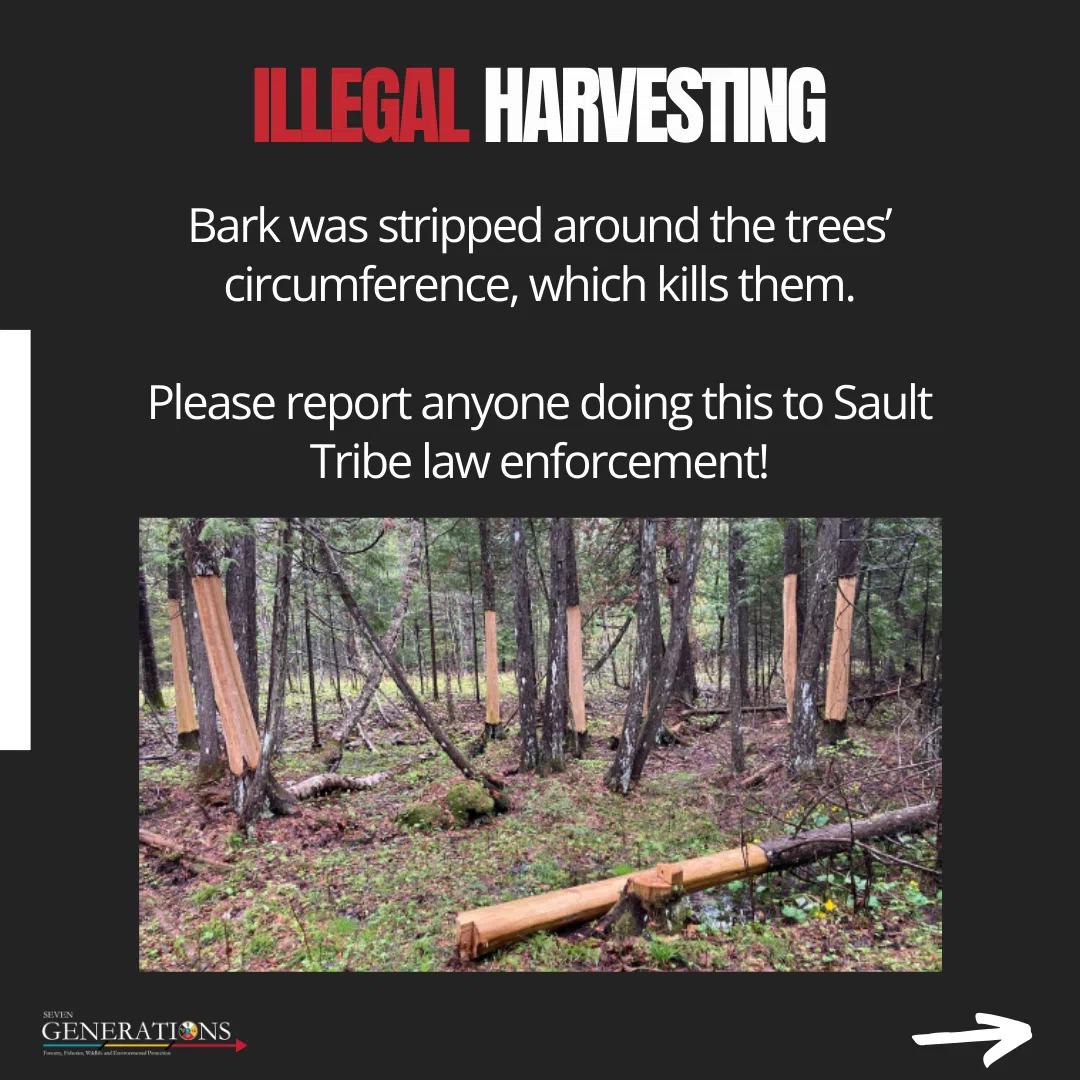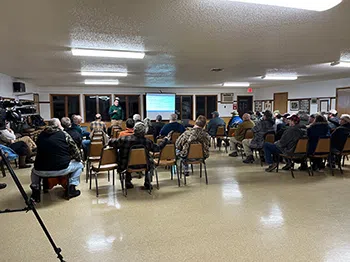The Sault Ste. Marie Tribe of Chippewa Indians is announcing an update to the Tribal Code that will ensure the sustainable harvest of Giizhik trees (northern white-cedar; Thuja occidentalis) in the 1836 Ceded Territory.
“Giizhik trees are sacred, elder beings to our Anishinaabe nation, which provide teachings, medicine, and essential habitat for other plants and wildlife,” said Sault Tribe Chairman Austin Lowes. “It’s important that we stop the abuse of Giizhik trees in our region and promote sustainable harvest practices for future generations.”
Giizhik trees have essential roles in Anishinaabe teachings, ceremony, and lifeways. They have been used for centuries for a variety of purposes: their wood is used for the frames of wiigwaasi-jiimaanan (birchbark canoes) and their bark is woven into beautiful and durable mats for ceremony. Unfortunately, Giizhik have been in decline across their range due to land use change and detrimental timber harvesting practices. They are also threatened by climate change.
The updated Tribal Code seeks to protect Giiizhik by using Anishinaabe harvesting traditions and seasonal cues to guide good bark harvesting practices. Under the new law, tribal members must obtain a permit before collecting Giizhik bark from tribal or public land. Legal harvesting under the updated Code is designed to protect and honor Giizhik trees and to maintain good harvesting relationships in future generations.
The Code specifies that:
- Collection is restricted to when ode’iminan (wild strawberries) are blooming and before the first frost, or June to September;
- The trees from which bark is harvested must be 12″ or larger in diameter;
- Bark may only be harvested in vertical strips that have a combined total width of one hand (6-8″) or less; and
- Trees may only be harvested from once in their lifetime.
The law also makes it illegal to girdle Giizhik trees and or collect bark from more than one-fifth of the tree’s circumference. Harvesters must consider how many trees their harvest will impact within an area and through time, taking care to ensure that Giizhik forests are healthy and resilient. Collection of Giizhik bark for commercial use is prohibited.
This update to the tribal law will allow Sault Tribe to fulfill our responsibilities in protecting and stewarding our lands by providing the enforcement necessary to defend against unsustainable and illegal harvest within the Treaty of 1836 Ceded Territory.
Those interested in reading the full text of the updated Giizhik harvesting rules can download chapters 21 and 23 of the Tribal Code at www.SaultTribe.com.
























Comments